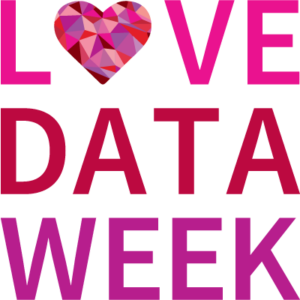
The Quality and Cost of Shared Data
Public access to research data is critical to advancing science and solving real-world problems. In recent years a number of funding agencies have required the management and broad sharing of research data and other related research outputs to accelerate the impacts of their investments.
In 2021 the Association of Research Libraries and six academic institutions, including WashU, were awarded a National Science Foundation (NSF) EAGER grant to conduct research, develop models, and collect costing information for public access to research data across five disciplinary areas: environmental science, materials science, psychology, biomedical sciences, and physics. The project explores where researchers are putting data, how FAIR is that data, and what the costs incurred by researchers and their institutions are to fulfill data-sharing requirements. Many at WashU completed the project survey, and we will reveal what we’ve learned so far in this session.
Presenter Bios
Jennifer Moore is head of data services at Washington University Libraries. She leads a team focused on data sharing and curation, literacy, handling, management, data visualization, and GIS. Moore is a partner and curator in the Data Curation Network and a co-PI on a National Science Foundation Grant (NSF) EAGER grant, Completing the Lifecycle: Developing Evidence-Based Models of Research Data Sharing. Additionally, she’s co-PI on the IMLS DCN’s Education project, and a co-editor on 3D Data from Curation to Curation: Community Standards in 3D Preservation. Moore has degrees in anthropology and fine art; she received her MLIS from the University of Illinois at Urbana-Champaign in 2010.
Alicia Hofelich Mohr is the research support coordinator in the Liberal Arts Technologies and Innovation Services (LATIS) at the University of Minnesota Twin Cities. She works with researchers on writing data management plans, designing reproducible research workflows, handling human participant data, and ethically sharing data. She has received training in De-Identification Methodology from the Health Information Trust Alliance (HITRUST) and Data Management & Curation from the Inter-University Consortium for Political and Social Research (ICPSR). She serves as a curator for social science data and statistical code in the Data Repository for the University of Minnesota (DRUM) and is a member of the Libraries’ Research Data Services Team.
Shawna Taylor is the project manager for the NSF-funded Realities of Academic Data Sharing (RADS) Initiative, a joint project between the Association of Research Libraries and the Data Curation Network. In this capacity, Shawna is working with six ARL/DCN member institutions over a two-year period to conduct research, develop models, and collect information from institutions and researchers on the costs of public access to research data. She previously served as a records manager at the US Fish & Wildlife Service, where she developed internal repositories for research data and preserved data for long-term access. Shawna has an MA in philosophy, a MLIS, and is a certified project manager.
As a member of the Association for Research Libraries (ARL) Scholarship and Policy team, Cynthia Hudson Vitale represents and advances the Association’s Scholars & Scholarship program with key partners, allies, and joint ventures to promote ARL’s broad mission of open, equitable scholarly communication, information stewardship, and publishing. She analyzes the global landscape of open science and open scholarship and works with research, higher education, information technology, and government agencies on institutional and public policy issues that arise from new and emerging practices in research, teaching, and learning. Prior to joining ARL, Cynthia served as the head of Research Informatics and Publishing at the Pennsylvania State University Libraries, where she led a team focused on enhancing the technology-driven research and publishing capacity of faculty and students. In this role, she built and enhanced library collaborations and services in the areas of data science, digital humanities, research data management and curation, open-access publishing, and maps & geographic information systems (GIS).

About Love Data Week
During Love Data Week we celebrate all things data, sharing resources and making connections to help ensure that all students and scholars at WashU are able to access, analyze, and utilize data.